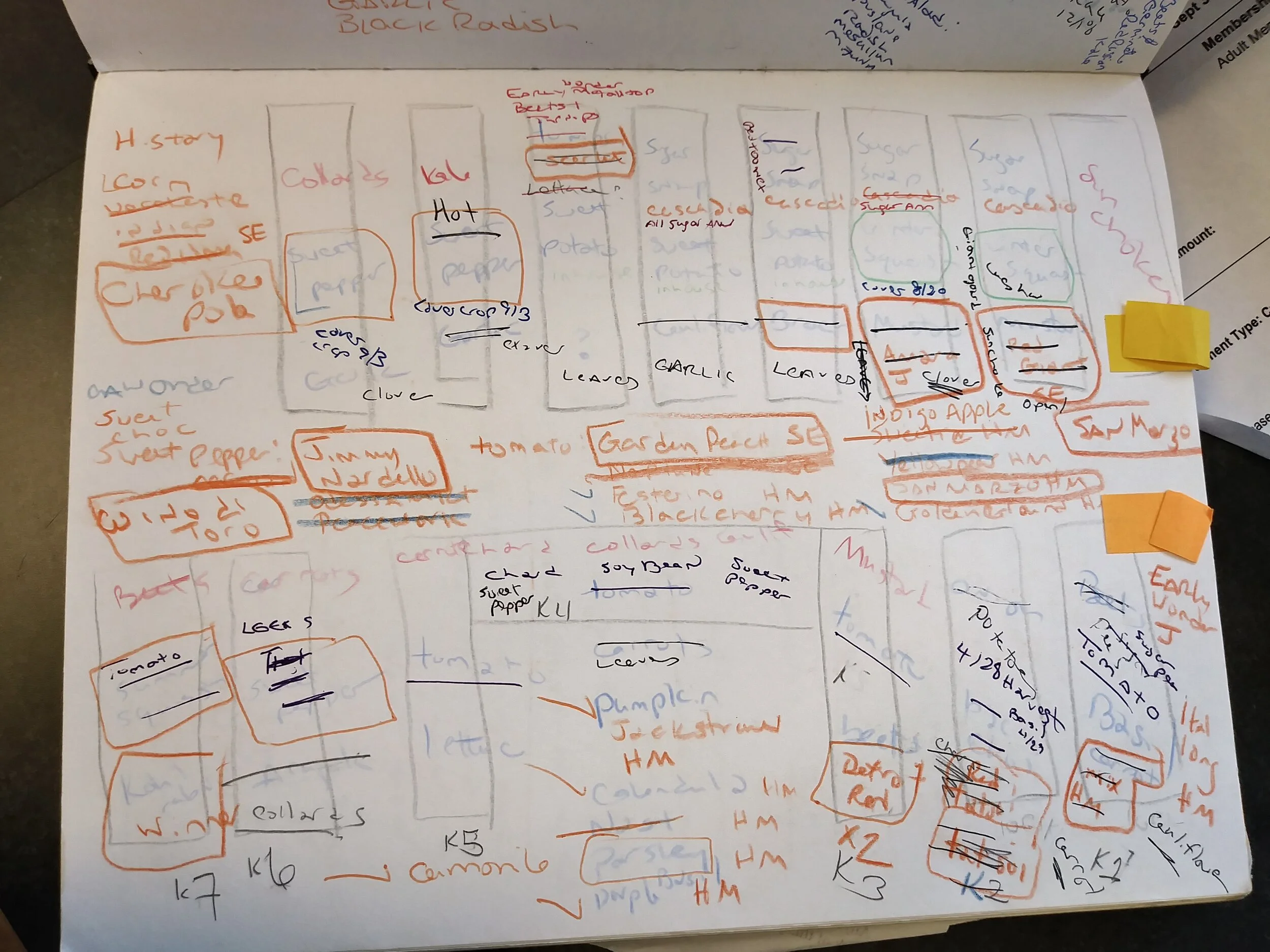In the winter garden
While we’ve still got periodic frosts, it’s time to plan you 2020 garden.
Tool of the Month: Garden Notebook - Sheets of paper stapled together, a dollar composition notebook, or a journal, a garden notebook is where you write your dreams, make your plans, and keep track of weather, pests and anything else you see and do in the garden. It will keep you focused this year, and you’ll use it to plan for next year.
Stuff to do in January/Early February
Get your soil tested! Soil tests take the guess work out of fertilizing, and it’s the best $7 you’ll spend on your garden this year (it’s also fun to tell the post office that you’re mailing dirt!). The Routine Soil Analysis form has instructions on the back for taking a soil sample. If you’re planning an organic garden write “organic mixed vegetables” in the Crops/Plants blank on the form.
Your plan is your own. It can be pretty - or not.
Make a plan. We plan for at least 52 crops and year round harvests so we know garden planning can be intimidating and overwhelming. Start with a list of what you like to eat. Then check out the Planning Guide for Home Gardening in Alabama. The guide gives suggested planting dates for just about everything you’ll want to grow. We’re far enough south that we feel you can plant a week or two earlier than what’s suggested in the guide. Use spreadsheets or make maps. Do what works for you. We draw pictures and use spreadsheets.
Order seeds! Once you have your plan, order your seeds. Starting plants from seed opens the door to so many more interesting varieties than you can buy at the store. We also have a seed swap coming up on Feb 29 to increase the diversity in your garden. We’ve listed our favorite seed companies on this blog post.
Clean and sharpen your tools. Clean tools last a lifetime and sharp tools making weeding fun. Keeping wooden handles oiled will keep them from splitting.
Plant sugar snap and English peas. Sometimes it’s a gamble, but we always plant peas in late January and early February for March harvests.
And if you’re growing year round, you might be harvesting kale, collards, kohlrabi, cabbage, lettuce and more! We’ve got our share of winter weeds like henbit and chickweed so weeding & mulching are winter tasks. We’v also just started chopping down some of our winter cover crop to give it a chance to decompose by spring.
